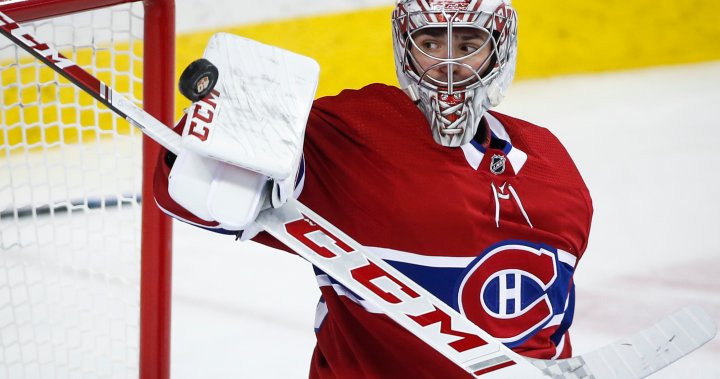
Carey Price seeking help signals changing narrative around mental health
Global News
'I think it's going to send a message that will reverberate from the NHL all the way down to minor hockey.'
In the wake of Carey Price‘s decision to step away from hockey and seek assistance, there has been widespread support for the star goalie of the Montreal Canadiens — and marks what appears to be a shift in addressing mental health in the world of professional and amateur sports.
Dr. Gordon Bloom, a professor of sports psychology at McGill University, said it is a change from the old narrative that athletes must “always suck it up, be a tough guy” even when they need help or don’t feel well.
“I think it’s going to send a message that will reverberate from the NHL all the way down to minor hockey,” he told Global News.
Price is voluntarily entering the NHL’s player assistance program, though few details were provided about what was behind the decision. The 34-year-old has not spoken publicly since the news was announced, but his wife penned a supportive message, citing mental health as the reason for Price’s temporary absence from the net.
READ MORE: Montreal Canadiens’ Carey Price voluntarily enters player assistance program
Habs’ general manager Marc Bergevin told reporters Thursday he was caught off guard, but he encouraged others to seek aid when necessary. “Better days are ahead for Carey,” he added.
After teammate Jonathan Drouin took time away last season and now with Price seeking assistance, Bloom compared the evolving perspectives around mental health to how conversations changed about concussions in the NHL.
He pointed to how Sidney Crosby stepping off the ice to recover from repeated concussions propelled professional sports organizations and athletes to recognize the severity of head injuries.




